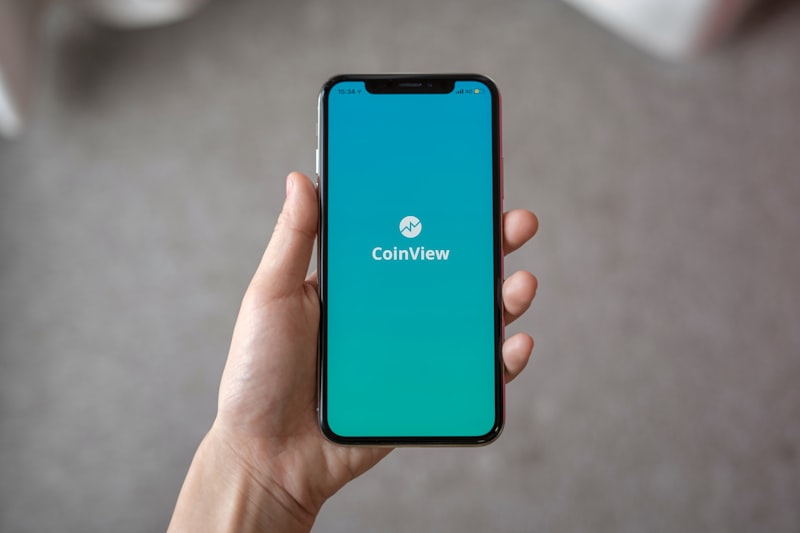What ıs the role of machine learning in mobile apps?
Moreover, machine learning algorithms power the predictive text feature on keyboards, making typing faster and more accurate by suggesting words and phrases based on context. This predictive capability, driven by machine learning models, learns from the user’s typing patterns and improves over time, adapting to personal preferences and language nuances.
Security is another critical area where machine learning plays a vital role in mobile apps. Machine learning algorithms can detect and mitigate potential security threats in real-time by analyzing user behavior and identifying anomalous activities that may indicate a security breach. This proactive approach enhances app security and protects user data from unauthorized access or cyber attacks.
Furthermore, machine learning enables apps to optimize performance and efficiency. For instance, fitness apps use machine learning to track and analyze workout data, providing insights into progress and suggesting personalized exercise routines. Similarly, navigation apps leverage machine learning to predict traffic patterns and recommend the fastest routes based on real-time data, improving overall user experience.

Revolutionizing User Experience: How Machine Learning Transforms Mobile Apps
Have you ever wondered how some mobile apps seem to anticipate your needs almost magically? From suggesting your next playlist to filtering your email for important messages, these apps are not just smart; they’re powered by machine learning, the new wizardry of the digital age.
Machine learning is not just a buzzword; it’s the driving force behind revolutionary changes in mobile app development. Imagine your smartphone learning your habits, preferences, and even mood, all to deliver a personalized experience like never before. This technology analyzes vast amounts of data in real-time, learning from every interaction you make with your device.
Take Netflix, for example. Its recommendation system uses machine learning algorithms to suggest movies and shows based on your viewing history and preferences. It’s like having a personal movie critic who knows exactly what you love to watch, all thanks to machine learning.
In the realm of mobile gaming, machine learning is crafting immersive experiences tailored to each player’s style. Game characters adapt to your skills and behavior, making each gaming session unique and challenging in just the right measure. This dynamic adjustment keeps users engaged, offering a level of personalization that traditional games could only dream of.
Security in mobile apps has also seen a significant upgrade with machine learning. From detecting unusual login patterns to identifying potential threats before they can cause harm, these apps are becoming smarter at protecting your data and privacy.
As technology continues to evolve, so too will the capabilities of machine learning in mobile apps. What seems groundbreaking today will become commonplace tomorrow, as developers harness this technology to create apps that not only meet but exceed user expectations. The future of mobile app experiences is here, driven by the transformative power of machine learning.

From Personalization to Prediction: Machine Learning’s Impact on Mobile App Development
Gone are the days of one-size-fits-all apps that serve every user the same content. With machine learning algorithms analyzing vast amounts of user data, apps now tailor experiences to individual preferences. Whether it’s suggesting your next favorite song or predicting the news topics you care about, these apps are learning and adapting in real-time.
Think of it this way: it’s like having a personal chef who knows your dietary preferences and prepares meals accordingly, without you even asking. Machine learning algorithms sift through user interactions, learning patterns, and behaviors to deliver a seamless and personalized experience.
But it doesn’t stop there. Machine learning has ushered in predictive capabilities that elevate user engagement to new heights. By understanding user behavior trends, apps can forecast what users might do next, offering proactive suggestions and alerts. It’s like having a GPS that not only tells you where you are but also predicts your destination based on your routine.
In mobile app development, this means developers can create apps that feel intuitive and responsive, almost like they can read your mind. By harnessing machine learning models, developers can embed features that predict user actions, optimize performance, and enhance usability.
The impact is profound across industries—from retail apps that recommend products based on your browsing history to fitness apps that adjust workouts based on your progress. Machine learning is not just a tool but a game-changer that redefines how we interact with technology on a daily basis.
Unveiling the Future: Machine Learning’s Integration into Everyday Mobile Apps
Machine learning algorithms are at the heart of this transformation. They enable apps to analyze vast amounts of data in real-time, allowing them to make intelligent decisions autonomously. For instance, a fitness app equipped with machine learning can not only track your workouts but also suggest personalized exercise routines based on your fitness level and progress. It’s like having a personal trainer in your pocket, available whenever and wherever you need guidance.
Moreover, the integration of machine learning enhances app functionalities across various domains. In healthcare, mobile apps can use machine learning models to diagnose illnesses based on symptoms reported by users, potentially revolutionizing remote healthcare access. Similarly, in e-commerce, machine learning algorithms power recommendation systems that suggest products tailored to individual preferences, thereby enhancing the shopping experience.
The impact of machine learning extends beyond personalization. It also plays a crucial role in enhancing app security and performance. For example, machine learning algorithms can detect and mitigate potential security threats in real-time, safeguarding user data from cyber-attacks. Additionally, these algorithms optimize app performance by predicting and preemptively addressing issues like crashes or slowdowns, ensuring a seamless user experience.
As we look ahead, the integration of machine learning into everyday mobile apps promises to unlock new possibilities for innovation and convenience. Whether it’s improving productivity, enhancing entertainment experiences, or advancing healthcare solutions, machine learning is set to empower mobile apps to become smarter and more responsive than ever before. Embracing this technological shift opens doors to a future where our devices truly understand and cater to our unique needs, making everyday interactions more intuitive and efficient.
Efficiency Redefined: The Role of Machine Learning Algorithms in Mobile App Optimization
Picture this: you open an app, and voila! It suggests the exact products you were eyeing last week or gives you tips on a new workout routine that suits your fitness level. That’s the power of ML in action. These algorithms analyze your usage patterns, preferences, and interactions with the app to deliver a personalized experience that feels like it’s tailor-made just for you.
So, how do these algorithms pull off such feats? They’re designed to learn and adapt. Each time you use the app, ML algorithms gather data points like which features you use most frequently, how long you spend on certain tasks, and even your geographic location. Over time, they crunch this data to predict what you might want next, whether it’s suggesting nearby restaurants, predicting traffic conditions, or even reminding you of an upcoming event based on your calendar history.
Think of ML algorithms as your virtual assistants, tirelessly working to make your mobile app experience smoother and more intuitive. They sift through vast amounts of data in milliseconds, sorting and categorizing information to provide you with relevant content promptly. It’s like having a knowledgeable friend who anticipates your every need, all without you having to lift a finger.
Moreover, these algorithms don’t just benefit users; they’re a game-changer for app developers too. By integrating ML into their apps, developers can streamline processes, identify bugs faster, and improve overall performance based on real-time user feedback. It’s a win-win situation where users get a seamless experience, and developers refine their products continuously.
Securing the Edge: Machine Learning’s Crucial Role in Mobile App Security
In today’s digital landscape, where mobile apps are an integral part of daily life, ensuring their security is paramount. Machine learning has emerged as a powerful ally in the battle against cyber threats, especially in the realm of mobile app security. But how does machine learning actually fortify these apps?
Imagine machine learning algorithms as vigilant guards stationed at the edge of your mobile app’s defenses. They continuously analyze vast amounts of data, swiftly identifying patterns that could signal potential security risks. Just like a seasoned detective, machine learning algorithms can detect anomalies in user behavior that may indicate unauthorized access attempts or malicious activities.
One of the key strengths of machine learning in mobile app security lies in its ability to adapt and evolve. As cyber threats become more sophisticated, traditional rule-based security measures may fall short. Machine learning, however, can learn from new data and adjust its algorithms accordingly, staying one step ahead of cybercriminals.
Think of it as teaching a guard dog to recognize not just intruders it has encountered before, but also new threats based on evolving patterns of behavior. This adaptive capability allows machine learning to provide proactive defense mechanisms, preemptively identifying and mitigating potential risks before they escalate.
Moreover, machine learning enhances the accuracy of threat detection. By analyzing diverse sets of data from app usage patterns to network traffic, machine learning algorithms can differentiate between normal user activities and suspicious behavior with a high degree of precision. This minimizes false positives, ensuring that legitimate users can seamlessly enjoy their app experience without unnecessary interruptions.
In essence, machine learning serves as a dynamic shield that continuously strengthens the security posture of mobile apps. Its ability to learn, adapt, and accurately identify threats makes it an invaluable tool in safeguarding sensitive user data and maintaining trust in the digital ecosystem.
Beyond the Screen: Machine Learning and the Evolution of Augmented Reality in Mobile Apps
Imagine holding up your smartphone and seeing digital objects integrated flawlessly into your surroundings. This is the magic of AR, driven by sophisticated machine learning algorithms that enable devices to interpret and interact with the world in real-time. Unlike traditional apps, which operate within predefined parameters, AR apps harness the power of machine learning to adapt dynamically to their environment, making them incredibly versatile.
One of the key strengths of machine learning in AR is its ability to recognize and track objects accurately. By analyzing data from the device’s camera and sensors, ML algorithms can identify surfaces, understand spatial relationships, and overlay virtual content accordingly. This capability not only enriches gaming experiences but also extends to practical uses like interior design previews, where users can visualize furniture in their living spaces before making a purchase.
Moreover, machine learning enhances the realism of AR by refining visual fidelity and responsiveness. Algorithms continuously learn from user interactions, improving their ability to render high-quality graphics and animations in real-time. This adaptive learning process ensures that AR experiences feel natural and immersive, whether you’re exploring virtual museums or trying on virtual clothes.
In the realm of mobile apps, AR powered by machine learning opens doors to new forms of entertainment, education, and commerce. From interactive storytelling to hands-on learning experiences, these technologies are reshaping how we engage with digital content on our devices. As developers continue to innovate, integrating AI-driven features into AR apps will likely drive even greater adoption and evolution in the years ahead.
Machine learning’s synergy with augmented reality marks a pivotal moment in mobile app development, promising boundless opportunities for creativity and utility. Whether enhancing productivity tools or revolutionizing social media interactions, this fusion of technologies promises to redefine our digital interactions, ushering in a future where virtual and real worlds blend seamlessly.

